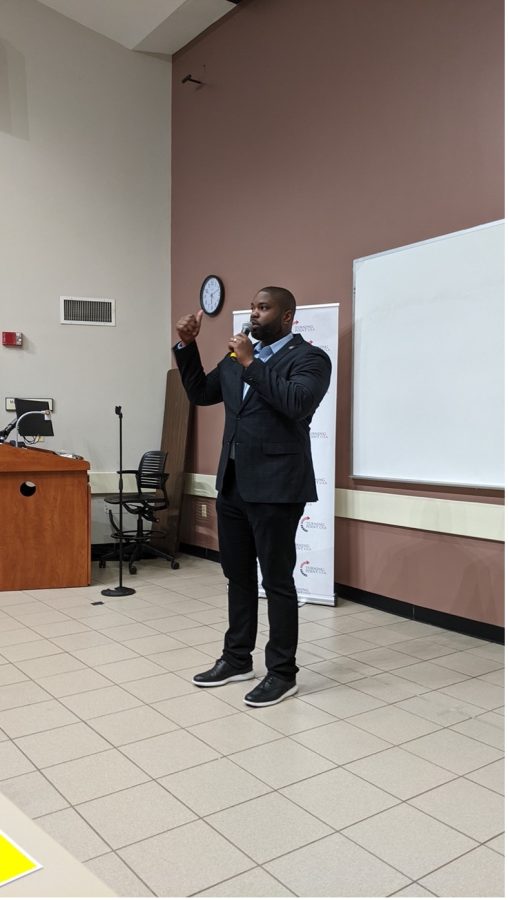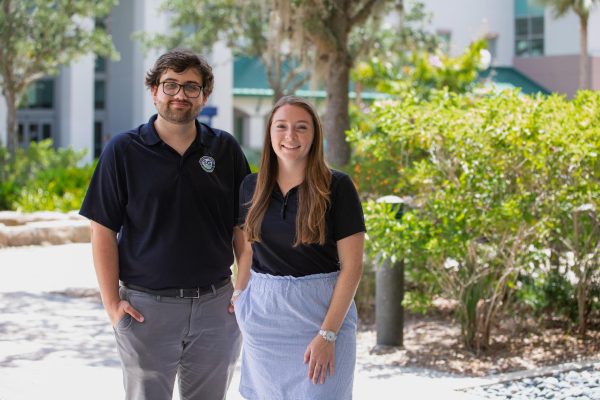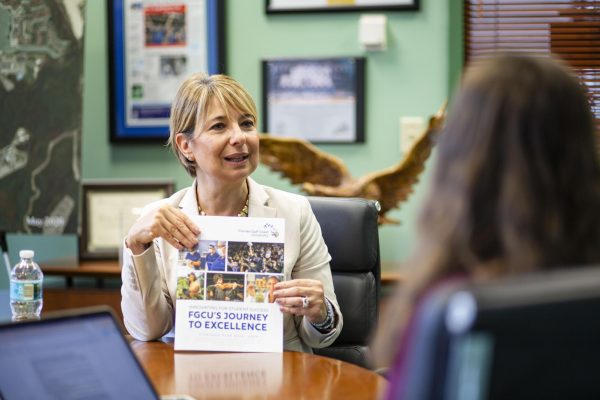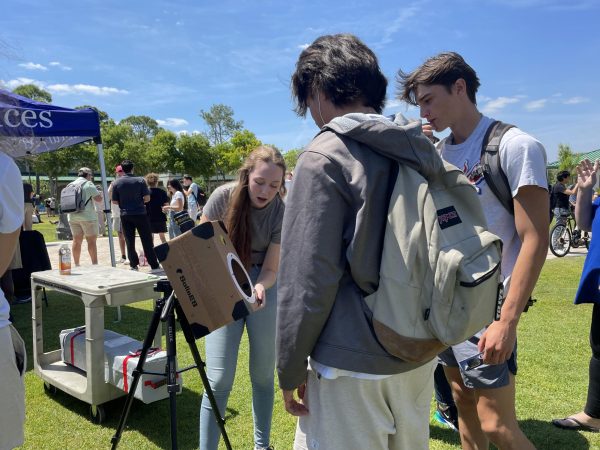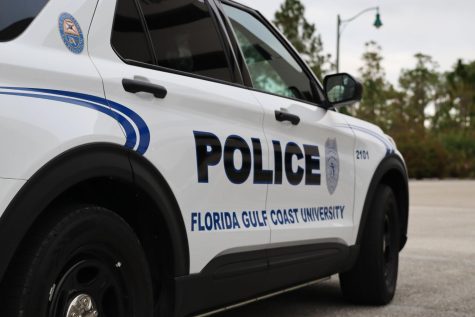US Congressman Byron Donalds visits FGCU to talk about Critical Race Theory
April 29, 2022
U.S. Congressman Byron Donalds visited Florida Gulf Coast University last Monday and spoke about critical race theory to FGCU Turning Point USA members.
He spoke in opposition of critical race theory saying that it does not belong in primary and secondary schools. The event was held by Turning Point USA, an organization that advocates conservative values on high school and college campuses.
“The academic world will tell you, ‘We don’t teach and we don’t have classes on critical race theory,’ and they are right,” Donalds said. “It is weaved and it is embedded in textbooks, classroom material, teacher trainings, supplemental material, and it is given in nuggets for teachers, which are breadcrumbs for students.”
He referenced the 54 books recently banned by the Florida Department of Education for allegedly containing CRT and other prohibited material and said 71 percent of them were for kindergarten through fifth grade.
According to Donalds, teachers are picking up CRT from training materials and training sessions funded by nonprofit organizations that specialize in diversity, equity and inclusion and that have contracts with governmental bodies.
Donalds does not believe there are issues with diversity and inclusion. “It’s equity,” the congressman said. “Equity requires that you have to ignore all other facets of performance, and the number one facet that matters is the color of one’s skin or the financial background of an individual.”
Dr. Jennifer Sughrue, an FGCU professor and the program director of the Department of Leadership, Technology & Research, is a supporter of CRT and said that it is not taught in K-12 classrooms. Sughrue, who holds a doctorate in educational leadership, said her knowledge in CRT comes from her studies of law and policy and studies in education.
“[Politicians] say, ‘Do you know if we teach them this, they’re going to hate America?’ and people believe it,” Sughrue said. “They say what they think you want to hear in a way that you will agree with them.”
Donalds said his issue with the equity model is on the individual level. “What it will always breed is resentment,” Donalds said. “I’ve taken time through my life to develop the talents and the abilities to get where I am.”
Donalds said he does not support CRT in K-12 because the success level of the U.S. cannot continue with critical race theory.
“[CRT] is a different way to analyze law and policy and who is impacted by that [and] if there are barriers being created so that we’re not all equal under the law, like the Fourteenth Amendment says.” Sughrue said.
Donalds’ solution to racial and ethnic disparities is to provide access to disenfranchised groups to be able to “join the game.”
“Equity is actually a model for failure.” Donalds said. “If there is no bar that people have to meet outside of everything just being fair, you actually destroy the incentive model that allows people to grow and to thrive.”
Sughrue’s approach to racial and ethnic disparities is to work toward a common good.
“Now, that common good is not defined by what one group thinks is right and the other one thinks is wrong. It is what benefits as many people and helps as many people as it can.”
To those who oppose CRT, Sughrue said, “I would take them back to review what James Madison and Thomas Jefferson wrote years ago about the need for an educated citizenry to keep government in check, that they must always be questioning and holding our politicians, our leadership and our government responsible and not accept. Well, that’s the basis of critical theory.”
According to FGCU’s website, the college offers a course called Critical Race Theory in Communication.
The website says it “(1) explores communication and the dynamics of race-race, power, privilege, and oppression – primarily in the U.S. context; (2) connects theoretical perspectives from critical race theory, whiteness studies, and the interracial communication to practical perspectives based on students’ lived experiences; (3) uses academic texts, personal narratives in literature, and documentary and non-documentary films.”
































